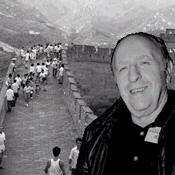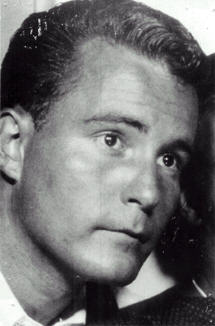 |

 'Homosexuality is No Disease' Pioneering American Activists praise the 'Great Leap Forward' Guidelines Halt Classification of Same-Sex Love as Abnormal |
|
Compiled By GayToday
The decision was reached as a result of a five-year study conducted by a task force of the Chinese Psychiatric Association that aimed to revise outdated theoretical definitions of mental health. The new guidelines will be released in April. A person at ease with his or her homosexual orientation, according to the guidelines, has no need of psychiatric assistance. Same-sex desire only becomes problematic if an individual is distressed because he or she has accepted anti-gay culturally-induced prejudices. The guidelines represent a radical change in China's approach to issues surrounding mental health. Its 1994 handbook listing psychoses had pointedly opposed the World Health Organization's call for society to embrace, without prejudice, its gay and lesbian citizens. As early as 1973, the American Psychiatric Association, following heated debates that were exacerbated by a handful of anti-gay psychiatrists, first voted to declassify homosexual desire as a mental disorder. Gay activist organizations, starting in 1963, had begun questioning old-fashioned psychiatric standards. A small group of militants, including GayToday's editor, pressed adamantly for the much-needed declassification. The first American gay activist group to adopt a policy stating unequivocally that homosexuality is not a disease was The Mattachine Society of Washington, an independent organization founded in 1961 in the nation's capital. Ten years prior to the American Psychiatric Association's removal of same-sex desire from its list of pathologies, most other gay and lesbian groups, in contrast to Washington's Mattachine, had been loathe to go up against the psychiatric establishment. Historian John D'Emilio tells in Sexual Politics/ Sexual Communities: The Making of a Homosexual Minority in the United States, how GayToday's editor first addressed the "sickness" issue. D'Emilio said (p. 163):
Nichols had been urged to write this letter to the Mattachine Society's Executive Board by his comrade-in-arms and mentor, Dr. Franklin E. Kameny. The two men shared, at that time, a fierce commitment to challenging what they called "psychiatry's utter nonsense." Historian D'Emilio was quick to note that: "Nothing, however, came immediately of Nichols' plea." Nevertheless, the gay movement of the mid-1960s soon saw the "sickness issue" become controversial and much politicized. Conservative members were wont to revere psychiatric theorizing. Opposing the militant "anti-sickness" crusaders, they argued: "More research is needed before we can say with assurance that homosexuality is not an illness." Franklin Kameny responded vigorously to this antiquated view by insisting that it is homosexuals themselves, and not psychiatrists, who remain the foremost authorities on homosexuality.
This position, quoted in Ronald Bayer's Homosexuality and American Psychiatry; The Politics of Diagnosis, read: The Mattachine Society of Washington takes the position that in the absence of valid evidence to the contrary homosexuality is not a sickness, disturbance or other pathology in any sense but is merely a preference, orientation or propensity on par with, and not different in kind from, heterosexuality. Crafted by Franklin Kameny and the Mattachine Society of Washington's board, this statement effectively opened the door to the adoption of similar policies by gay and lesbian groups nationwide. Bouyed by Washington Mattachine's stance, militant activists elsewhere, including Barbara Gittings and Kay Tobin Lahusen in Philadelphia, Roz Regelson, Randolfe Wicker and Dick Leitsch in New York and Richard Inman in Miami, launched an unrelenting crusade against bogus psychiatric dogmas . In their essays, on TV talk shows, and among their own groups' memberships, the militants eventually prevailed.
Reflecting yesterday on the Chinese Psychiatric Association's new guidelines, Franklin Kameny, in a statement requested by GayToday, addressed what some activists are now calling China's "great leap forward." Kameny said: "Better late than never! Some twenty-eight years after America and most of the western world, China is finally coming to its senses in regard to its gay people and their homosexuality. This is a hopeful gesture which, perhaps, will trigger long overdue related cultural and legal changes and, thereby, might signal much improved lives for Chinese gays. Perhaps it might even induce the hideously backward and brutal Chinese government to begin a badly-needed move forward into a freer and less regimented 21st Century on many fronts." Dr. George Weinberg told GayToday: "Official verdicts are, of course, meaningless in themselves. One can't legislate desire. But the verdict has a ripple effect: tight-assed parents won't be able to cite officialdom as supportive of their prejudices. Only slowly will the result of this verdict be felt by Chinese gays and also by others." |



